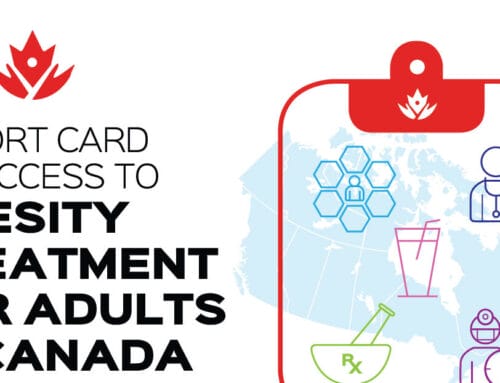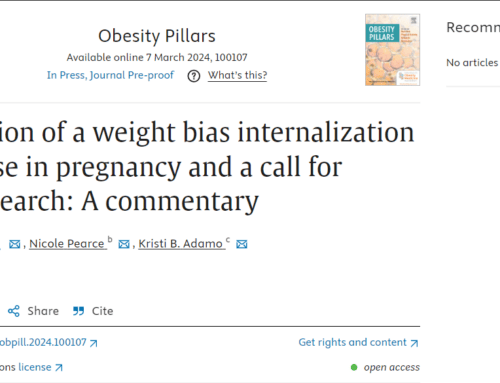Today’s post comes from Alexa Ferdinands. Alexa is a registered dietitian and a PhD student in health promotion and socio-behavioural sciences at the University of Alberta. She is also the current Financial Director of the CON-SNP National Executive. You can find more about Alexa here!
The dangers of sugar have plagued media headlines over the last several years. The evidence behind some of these headlines is questionable (no, sugar is not the same as cocaine). What is certain, however, is that sugar-sweetened beverages (SSBs) are a major source of sugar in Canadians’ diets, and pose a serious harm to our health.
SSBs refer to drinks with added sugar, corn syrup, or other caloric sweeteners, including regular (non-diet) pop, energy drinks, sports drinks, and fruit drinks (not 100% juice). Unlike other foods and beverages, SSBs provide virtually no nutritional value, aside from energy. Furthermore, people don’t usually adjust their dietary intake to compensate for calories consumed from SSBs, leading to weight gain (1). Aside from obesity, SSB consumption has been linked to other serious chronic diseases, including type 2 diabetes and heart disease (2-4). Despite their negative health impacts, SSBs in Canada are inexpensive, widely available, and heavily marketed by industry.
Drawing on lessons learned from tobacco control (another harmful substance with no health benefits), SSB taxation has emerged as a potential public health tool to address obesity and other diet-related chronic diseases. Although there is no magic bullet for obesity, SSB taxation can serve as one piece of the prevention puzzle.
Breaking research from the University of Waterloo suggests that the health and economic benefits of a 50 cent per litre tax on SSBs in Alberta could be substantial (5). According to the research, over the next 25 years, a 50 cent per litre tax in Alberta could postpone 1,200 deaths in the province, and prevent:
- 61,300 cases of overweight and obesity
- 21,700 cases of type 2 diabetes
- 5,700 cases of ischemic heart disease
- 2,100 cases of cancer
- 750 cases of stroke
The research also indicates that during this time period, a 50 cent per litre tax could help Albertans live healthier lives by averting approximately 46,200 disability-adjusted life years. Reviewing the economic benefits, a 50 cent per litre tax is estimated to produce nearly $1.1 billion in health care savings and $3.5 billion in tax revenue over the same 25-year period.
Several jurisdictions worldwide, including Finland, France, Mexico, and cities in the United States (e.g. Berkley, Philadelphia), have implemented a tax on SSBs (6,7). Well-renowned health organizations, such as the World Health Organization, Dietitians of Canada, Heart & Stroke, and Diabetes Canada, have also endorsed such a tax (8-11). In Canada, the Government of the Northwest Territories recently announced plans to introduce a sugar-sweetened beverage tax in 2018-2019 (11).
My PhD research supervisor, Dr. Kim Raine, is one of the co-leads of the Alberta Policy Coalition for Chronic Disease Prevention (APCCP), a coalition of 17 member organizations who work together in advocating for policy changes for a healthier Alberta. Given the evidence and global momentum building on this issue, the APCCP has recently called on the Government of Alberta to seriously consider implementing a 50 cent per litre tax on SSBs. In mid-December 2017, Food Epi-Canadaalso released a report, where one of the top three federal policy recommendations included implementing an excise tax on all sugary drinks (12). In addition to reducing consumption, revenue generated from a tax could be used to fund provincial health promotion initiatives.
“Evidence on the potential health and economic benefits of a sugar-sweetened beverages levy is growing globally. It’s time for the Province of Alberta to stop ignoring this important issue.”
-Dr. Kim Raine, APCCP Co-Lead, Scientific Director, Centre for Health & Nutrition, Professor and Associate Dean (Research), School of Public Health, University of Alberta
Check out some of the SSB advocacy work conducted by the APCCP:
Global News: Health Matters https://globalnews.ca/video/3901804/health-matters-dec-6-2017
CTV News Calgary | Group says levy for sugary drinks will help Albertans kick their sweet tooth
Metro Edmonton | Tax on sugary drinks would save Alberta millions, advocates say
https://abpolicycoalitionforprevention.ca/wp-content/uploads/2016/08/ab-ssb-infographic-web.pdf
Photo: Acres of Sugar by Ilovebutter/Flickr/CC by 2.0
References
- Malik VS, Schulze MB, Hu FB. Intake of sugar-sweetened beverages and weight gain: a systematic review. American Journal of Clinical Nutrition. 2006;84(2):274-88
- Taxing SSBs may effective reduce SSB consumption Escobar MAC, Veerman JL, Tollman SM, Bertram MY, Hofman KJ. Evidence that a tax on sugar sweetened beverages reduces the obesity rate: a meta-analysis. Bmc Public Health. 2013 Nov 13;13.
- Eyles H, Ni Mhurchu C, Nghiem N, Blakely T. Food pricing strategies, population diets, and noncommunicable disease: a systematic review of simulation studies. PLoS Med. 2012;9(12):e1001353.
- Powell LM, Chriqui JF, Khan T, Wada R, Chaloupka FJ. Assessing the potential effectiveness of food and beverage taxes and subsidies for improving public health: a systematic review of prices, demand and body weight outcomes. Obes Rev. [Review]. 2013 Feb;14(2):110-28.
- Jones, AC, Hammond D. The health and economic impact of a tax on sugary drinks in Alberta. November 2017.
- Le Bodo Y, Paquette M-C, De Wals P. Taxing soda for public health: a Canadian perspective: Springer; 2016.
- Erb KP. Judge dismisses soda tax lawsuit against City of Philadelphia. Forbes; 2016; Available from: https://www.forbes.com/sites/kellyphillipserb/2016/12/19/judge-dismisses-soda-tax-lawsuit-against-city-of-philadelphia/#56e3799156e6.
- World Health Organization. WHO urges global action to curtail consumption and health impacts of sugary drinks. 2016 [cited 2016 December]; Available from: https://www.who.int/mediacentre/news/releases/2016/curtail-sugary-drinks/en/.
- Dietitians of Canada. Sugar-sweetened beverages and taxation. 2016 [cited 2017 January 20]; Available from: https://www.dietitians.ca/Dietitians-Views/Sugar-sweetened-Beverages-and-Taxation.aspx.
- Canadian Diabetes Association. Canadian Diabetes Association’s position on sugars. 2017 [cited 2017 January 21st ]; Available from: https://www.diabetes.ca/about-cda/public-policy-position-statements/sugars.
- Heart and Stroke Foundation. Sugar, heart disease and stroke 2014 [cited 2017 November]; Available from: https://www.heartandstroke.ca/-/media/pdf-files/canada/2017-position-statements/sugar-ps-eng.ashx.
- McLeod C. Budget address 2017-2018 Northwest Territories. Government of Northwest Territories 2017 [cited 2017 June]; Available from: https://www.gov.nt.ca/newsroom/news/robert-c-mcleod-budget-address-2017-2018-northwest-territories.
- Vanderlee L, Goorang S, Karbasy K, Schermel A, L’Abbe M. Creating healthier food environments in Canada: Current policies and priority actions – Summary report. Toronto; University of Toronto, 2017. Available at: www.labbelab.utoronto.ca/Food-EPI-Canada-2017







